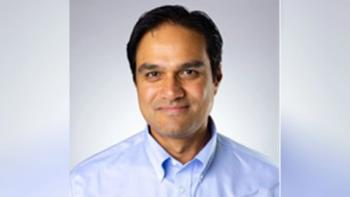
The Rapid Growth of Remote Patient Monitoring Solutions Can Accelerate Decentralized Clinical Trials
Pharma companies and RPM manufacturers must work together to find solutions to make DCT more commonly available.
For years, the pharmaceutical industry has known that decentralized trials, in which participants don’t have to attend many visits sessions at traditional clinical sites, can have profound positive effects. But when designing trials, pharma companies have had understandable concerns. Anytime a new medicine or therapy is being developed, it’s crucial to track patients for a slew of potential side effects, some of which could have consequences. So, trial sponsors have been wary of going substantial periods of time without monitoring these participants in person.
Now, the rapid growth of RPM (remote patient monitoring) solutions is changing the paradigm. An influx of technologies is making it possible for pharma companies to conduct decentralized trials for all therapeutic areas–from cancer treatment to antidepressants and opioids–all while keeping track of patients’ health data.
The more biotech and device companies embrace these tools, the faster they’ll move into a new era in which decentralized trials become the norm.
Benefits of decentralization
Studies show that many patients prefer1 decentralized trials. That's no surprise, given how much easier it is when they can take trial medications and provide information electronically, or at a clinic near their home, rather than traveling to traditional sites.
Decentralized clinical trials (DCTs) can also go a long way in tackling a problem that the pharmaceutical industry struggles with: getting diverse populations involved in clinical research. “Despite researchers’ efforts to recruit people of diverse backgrounds, members of minority groups are generally underrepresented in clinical research,” says2 Dr. Leonard Sacks, associate director for clinical methodology in the FDA’s Center for Drug Evaluation and Research. “This underrepresentation can have real-world consequences, as people of different ages, biological sexes, races, and ethnicities may have a range of responses to treatments that the clinical trial may not fully capture.”
But decentralization has been all too often lacking. As a study3 published last October explained, “Despite the intuitive attractiveness of ‘meeting patients where they are,’ widespread adoption of a decentralized trial approach has not been achieved.” The study found that barriers include “underdeveloped digital infrastructure, lack of experience with design, and concerns about regulatory requirements for data collection and reporting,” as well as the challenge of “establishing a relationship between the study team and wearable device manufacturers, to obtain the quality and quantity of data needed for a particular study.”
As a medical professional and part of a team developing RPM solutions at AliveCor, I know how important it is for manufacturers like us to work with trial sponsors, helping them design trials which include new technologies that are easy for participants to use.
Keeping up with RPM technologies
The RPM industry is growing so quickly that it can be impossible for people designing pharma trials to keep up with all the solutions available. The industry was estimated to be worth $14 billion last year, and is expected to triple by 2028, reaching $42 billion.4
New technologies pop up all the time, offering different ways to track patients’ health. Designers of clinical trials need to know that these solutions are proven to be effective. This is why demonstrating results and undergoing pilot programs is so important for RPM manufacturers.
For example, at AliveCor we received FDA clearance5 in 2021 for healthcare professionals to use the KardiaMobile 6L to collect a crucial piece of information about patients’ heart health: their QTc interval. As the Mayo Clinic explains it,6 the QT interval “is the time it takes for the heart to contract and refill with blood before it beats again.” The QTc is the rate-corrected7 interval.
We continue our efforts to demonstrate the many ways that this tool can safely be used in trials. Last year, we announced a partnership8 with Thomas Jefferson University Hospital to evaluate the benefits of using the KardiaMobile 6L for QTc monitoring of patients who receive methadone maintenance therapy for opioid use disorder. These kinds of evaluations help demonstrate to pharma companies that RPM tools can be trusted to deliver the necessary information.
In fact, thanks to RPM, decentralized trials may be able to do a much better job of tracking and monitoring patients than traditional trials. As Sacks noted, digital health technologies “can collect data much more frequently than scheduled trial visits, sometimes even continuously. These technologies also capture information during participants’ routine activities, providing insight into the effectiveness and safety of the treatment in ‘real life.’”
They can also save pharmaceutical companies a great deal of money. A study found9 that “employing DCT methods in phase II and phase III trials” leads to an increase in value of “$20 million per drug that enters phase II, with a seven-fold ROI.”
There will always be some trials that can only take place safely at traditional sites due to protocol requirements. But for a great many, the opportunity to decentralize has arrived. The key is for pharma companies and RPM manufacturers to work together to make this shift happen, empowering all stakeholders with the tools to enter this new era.
-Dr. Ben Green is senior vice president, services, at AliveCor.
Sources
- Macdonald, Gareth. People more likely to take part in trials that use decentralized tech: study. Fierce Biotech. July 15, 2022. https://www.fiercebiotech.com/cro/people-more-likely-take-part-trials-use-decentralized-tech-study
- The Evolving Role of Decentralized Clinical Trials and Digital Health Technologies. FDA. May 2, 2023. https://www.fda.gov/drugs/cder-conversations/evolving-role-decentralized-clinical-trials-and-digital-health-technologies
- Dulko, Dorothy; Kwong, Manlik; Palm, Marisha; Trinquart, Ludovic; Selker, Harry. From a decentralized clinical trial to a decentralized and clinical-trial-in-a-box platform: Towards patient-centric and equitable trials. Journal of Clinical and Translational Science. October 9, 2023. https://www.ncbi.nlm.nih.gov/pmc/articles/PMC10663768/
- Remote Patient Monitoring Market/RPM Market by Product, End User, and Region–Global Forecast to 2028. Markets and Markets. https://www.marketsandmarkets.com/Market-Reports/remote-patient-monitoring-market-77155492.html
- FDA Clears Personal ECG Device for Measurement of QTc Interval, a Critical Marker for Patient Safety. AliveCor. July 8, 2021. https://alivecor.com/press/press_release/fda-clears-personal-ecg-device-for-measurement-of-qtc-interval-a-critical-marker-for-patient-safety
- Long QT Syndrome. Mayo Clinic. https://www.mayoclinic.org/diseases-conditions/long-qt-syndrome/diagnosis-treatment/drc-20352524
- Malloy, Terri. Mayo Clinic research yields breakthrough in mobile determination of QT prolongation. Mayo Clinic. February 1, 2021. https://newsnetwork.mayoclinic.org/discussion/mayo-clinic-research-yields-breakthrough-in-mobile-determination-of-qt-prolongation/
- AliveCor and Thomas Jefferson University Hospital Partner to Evaluate KardiaMobile 6L for QT Prolongation Screening in Patients Treated for Opioid Use Disorder. AliveCor. July 20, 2023. https://www.prnewswire.com/news-releases/alivecor-and-thomas-jefferson-university-hospital-partner-to-evaluate-kardiamobile-6l-for-qt-prolongation-screening-in-patients-treated-for-opioid-use-disorder-301881575.html
- DiMasi, Joseph; Smith, Zachary; Oakley-Girvan, Ingrid; Mackinnon, Andrew; Costello, Mary; Tenaerts, Pamela; Getz, Kenneth. Assessing the Financial Value of Decentralized Clinical Trials. Springer Link. September 14, 2022. https://link.springer.com/article/10.1007/s43441-022-00454-5
Newsletter
Lead with insight with the Pharmaceutical Executive newsletter, featuring strategic analysis, leadership trends, and market intelligence for biopharma decision-makers.




